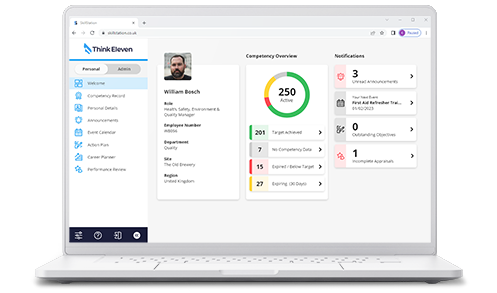The Care Act - Charging and Financial Assessment eLearning Course
Overview
The Care Act provides a single legal framework for charging for care and support. It enables a local authority to decide whether or not to charge a person when it is arranging to meet a person’s care and support needs or a carer’s support needs. The new framework is intended to make charging fairer and more clearly understood by everyone.
Audience
This course is intended for:
About this course
This course forms part of the suite of e-learning courses that have been developed to support the implementation of part one of the Care Act 2014. It is based upon the Skills for Care training materials.
Upon successful completion of both courses you will be automatically awarded a certificate containing the course name, completion date, CPD hours and learning objectives.
The course contains additional resource materials, useful links and refresher guides.
Objectives
In this course you will:
Content
Here are some of the topics covered in this course:
Can a local authority use discretion? | Choosing to charge | Which types of care can be charged for? | Services that cannot be charged for | Self-funders | Can the authority charge a fee? | Financial assessment - the 9 principles | What is taken into account? | Ownership of capital | Joint financial assessment | Property disregard | Example of property disregard | Change in circumstance | Discretion to disregard | Personal possessions | Upper and lower limits capital limits | Minimum income | Pension credit | How much can Ade be charged? | How much savings can be disregarded? | Minimum income guarantee | Should you provide a copy? | Light-touch financial assessment | When a light-touch financial assessment can be carried out | Does a person need to be informed? | Establishing whether a person has capacity | If the person lacks capacity | Deprivation of assets | What is the intention behind the deprivation? | Can the authority still charge the person? | Partially claimed pension | Notional income | Choice of accommodation | Conditions | Can I have a more option? | Top-up fees | First party top-ups | Charging to support carers | The impact of charging carers | Who should pay? | Recovery of debts – key change | Local authority actions | It is deferred – not ‘written-off’ | Ways to pay care costs | Acceptance criteria | Legal charge | Valuable assets | Accepting other forms of security | The security should be revalued periodically
This course has a minimum of 25 learner registrations for us to provide a quotation.
Request a Quotation- Language
- UK
- Date last updated
- 1/15/2025
- Duration
- 60 minutes
- Suitable Devices
-
- PC
- Phone
- Tablet
- Audio is Required
-
- Optional
- Includes Video
-
- Yes
- Downloadable Resources
-
- Linked within Course
- Completion Criteria
-
- Pass final test
- Visit all pages
- Pass Mark
-
- 80% pass mark required
- Course Technology
-
- HTML5
- SCORM 1.2
- Can be customised
-
- Available at an Additional Cost
- Accreditation or Endorsements
-
- CPD
- Languages
-
- English
